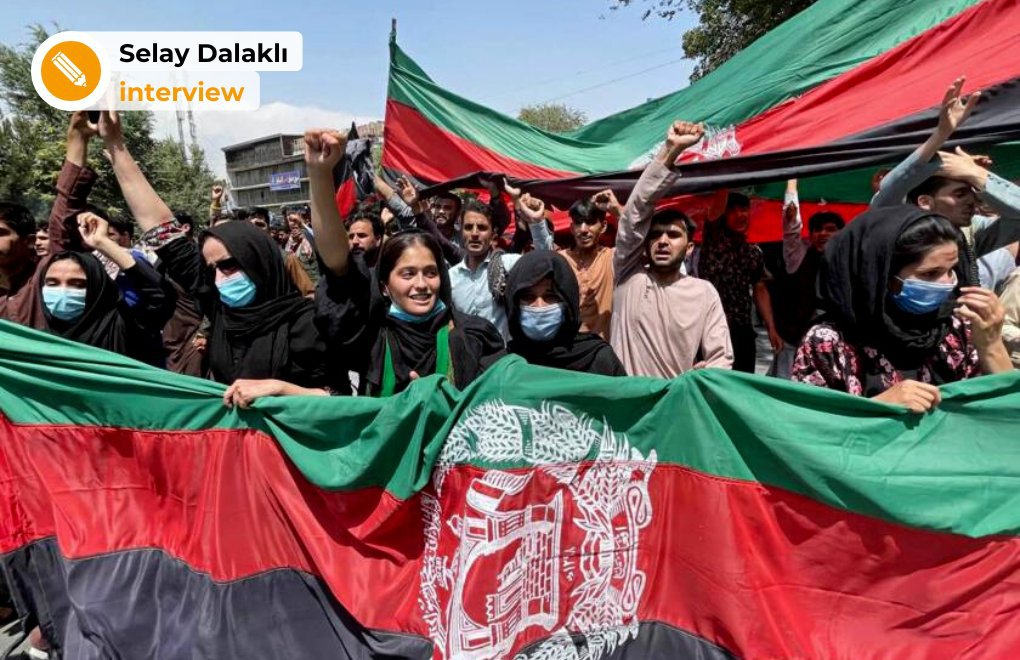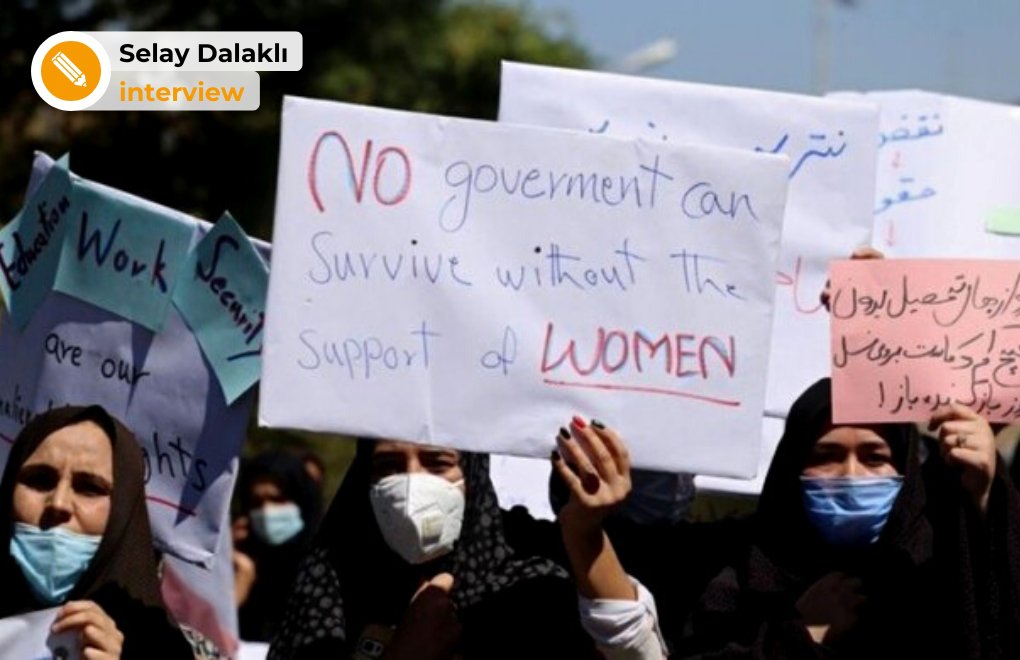* Credit: İzzeddin Kasim / AA - İdlib / Syria
Click to read the interview in Turkish
"It took years of Russian coaxing to bring these officials together, but the basic elements of a Turkish-Syrian rapprochement have actually been there for a long time. Syria's conflict is no longer what it was in 2011, or even 2015, and Turkey's own policy has also changed considerably.
"These days, Ankara's priorities in Syria are no longer about toppling Assad or even reforming his regime. They're about conflict management, combating YPG, and refugee repatriation."
This is how Stockholm-based Middle East analyst Aron Lund comments on the recent rapprochement between Türkiye and Syria.
According to Lund,  a fellow with New York-based Century International and a Middle East analyst at the Swedish Defence Research Agency (FOI)*, "What finally tipped the scales seems to have been the Ukraine War, combined with Turkey's domestic situation."
a fellow with New York-based Century International and a Middle East analyst at the Swedish Defence Research Agency (FOI)*, "What finally tipped the scales seems to have been the Ukraine War, combined with Turkey's domestic situation."
Noting that the Turkish side wants a possible Erdoğan-Assad meeting to take place before the 2023 general elections in Türkiye, Lund says:
"Since Erdoğan wants this to unfold before the election, Assad can build leverage by stalling the process. But it would be a very risky move for him to block continued talks altogether. Erdoğan may well remain in power after the elections, and at that point Assad's leverage could collapse."
Finding Türkiye's complete withdrawal from Syria unlikely, Lund notes: "It is important not to get tangled up in the terminology or to get stuck on formalities. Even without proper, official normalization, there could be extensive, pragmatic collaboration on specific issues."
We have spoken to Middle East analyst Aron Lund about Türkiye-Syria relations, Türkiye's possible land offensive into northern Syria and the potential effects of these developments on Türkiye-Sweden relations within the context of the latter's NATO membership bid.
'Trilateral meeting a first step in a complicated process'
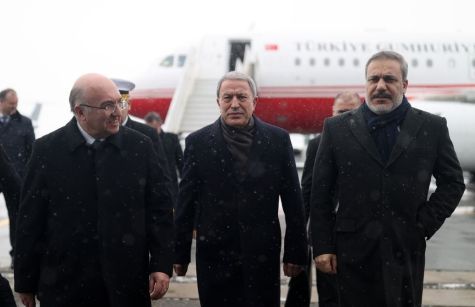
The defense ministers and intelligence heads of Türkiye, Syria and Russia met in Moscow in late December 2022, which marked the first high-level talks between Türkiye and Syria since 2011. What do you think this meeting mean or signify at a time when Türkiye has long been considering a possible land offensive into northern Syria?
The December 28 meeting was an important moment for the Syrian conflict, and for the countries involved. But even so, it was just a first step in what will likely be a long, complicated process.
It took years of Russian coaxing to bring these officials together, but the basic elements of a Turkish-Syrian rapprochement have actually been there for a long time. Syria's conflict is no longer what it was in 2011, or even 2015, and Turkey's own policy has also changed considerably.
These days, Ankara's priorities in Syria are no longer about toppling Assad or even reforming his regime. They're about conflict management, combating YPG, and refugee repatriation. These are all issues on which Ankara and Damascus can plausibly work together for mutual gain, or at least deconflict to avoid unnecessary friction.
'Russia refused to green-light a military operation'
What finally tipped the scales seems to have been the Ukraine War, combined with Turkey's domestic situation. Putin's invasion of Ukraine was a catastrophic strategic error, which—among other things—has left Russia more dependent on Turkey than previously.
Only a few months after the invasion, Erdoğan declared that he would launch another attack on the YPG enclaves in Syria, and he singled out a few areas where YPG operates under Russian protection.
The Russians dug their heels in, however. They have military forces in the area and they dominate the air space, so they refused to green-light a military operation. Instead, they and the Iranians began to pressure Erdoğan to seek some form of understanding with Assad. That seems to have been the message delivered at a trilateral summit in Tehran in July, and also at Erdoğan's meeting with Putin in Sochi soon after.
'Domestic situation made him receptive to demands'
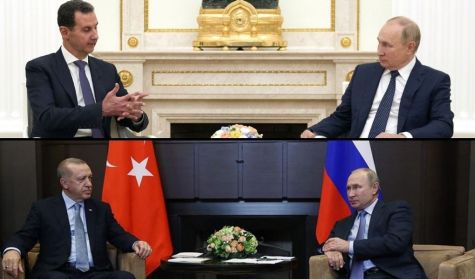
Now, I'm not a Turkey specialist by any means, but it seems clear that it was the domestic situation that made Erdoğan so receptive to these demands. Him and AKP have been doing poorly in the polls, and the Turkish opposition was pushing for normalization with Assad. Refugee repatriation was especially high on the agenda for many voters.
Reaching out to Assad would be a way for Erdoğan to flip things around and seize the initiative. Whatever one thinks of it as a foreign policy decision, it's a smart campaign move.
What do Erdoğan and Assad want?
So over the summer, Turkish and Syrian intelligence chiefs began to plan for a resumption of bilateral contact. In early winter, Ankara again escalated its interventionist rhetoric, after the Istiklal Avenue bombing. The Russians still blocked an intervention, but those weeks of saber-rattling may have served to push the backroom talks forward. On December 28, the defense minister meeting finally happened.
Since then, Turkish and Syrian officials have been haggling over when and where to arrange a follow-up foreign minister meeting, which is supposed to precede a presidential summit.
The Turkish side clearly wants to get to the summit quickly, for electoral gain. The Syrians have the opposite incentive: they want to extract as many concessions as possible on the way there.
Since Erdoğan wants this to unfold before the election, Assad can build leverage by stalling the process. But it would be a very risky move for him to block continued talks altogether. Erdoğan may well remain in power after the elections, and at that point Assad's leverage could collapse. Even if Assad's regime is very stubborn, I doubt they're so stubborn they'll want to pass on an opportunity to flip Turkey.
'Reopening of M4 will certainly be on the agenda'
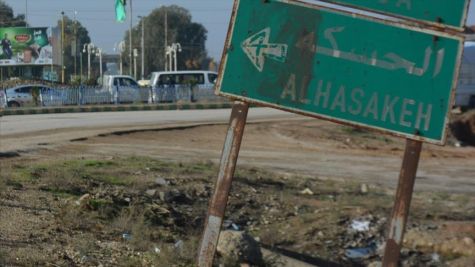
What do you think Türkiye and Syria, or rather, the Erdoğan and Assad governments gain or lose if the diplomatic relations are finally restored and normalized?
I don't think "normal" ties are on the table in the foreseeable future. Turkey won't pull its troops out of northern Syria, or at least not out of all of northern Syria. When one country occupies part of another, how normal can relations get?
That said, it's important not to get tangled up in the terminology or to get stuck on formalities. Even without proper, official normalization, there could be extensive, pragmatic collaboration on specific issues. There could be cooperation, de-confliction, and bartering for mutual concessions.
We're not there yet, but I think that's a likely outcome. That's why it's so important to figure out where their interests overlap, or are at least compatible, since it's those points that would be at the center of any reinvigorated Turkish-Syrian relationship.
The most obvious point is security and the management of shared borders and frontlines. Syrian and Turkish forces, or their proxies, may continue to clash intermittently, but they could also try to work out conflict management structures. Even in the absence of any real political reconciliation, they could develop a military-to-military dialogue, common understandings, hotlines, and the like. It would make for a more effectively frozen conflict, stabilizing the situation in a way that can allow for de-escalation and additional cross-frontline arrangements.
If the dialogue proceeds, they might get to a point where they start to trade things—perhaps including some territorial handovers.
One thing that will certainly be on the agenda is a reopening of the northwestern M4 highway, which crosses rebel territory between Aleppo and the Syrian coast. Both countries will likely also want to open frontline and border checkpoints for trade, to help their ailing economies. For Turkey, Syria can once again become a land route for transit trade with the Gulf.
'Rapprochement brings about other options'
The other obvious joint interest is in how to handle YPG. There's a range of options, depending on how much trust and coordination they are able to establish. For example, Damascus may offer to share intelligence and mark targets, to help Turkey pick off Kurdish leaders through drone strikes.
If they manage to get to a stage of deepened collaboration, they may hammer out some basic principles or even a joint strategy for how to deal with the YPG and the U.S. presence. Russia is likely to remain a key player on these issues.
More immediately, Turkey has been signaling that it wants to take action against Tell Refaat or possibly Manbij and Kobane. Rapprochement makes a unilateral Turkish incursion less likely, but it creates other options.
Damascus may greenlight limited Turkish operations, perhaps swooping in to seize control afterwards. They could set up a good cop, bad cop situation, forcing local YPG leaders to choose between destruction at the hands of Turkey or subjugation under Assad.
That is probably one of the likelier outcomes, and it is also what Russia appears to have been pushing for all along.
'Full Turkish withdrawal may not even be considered'
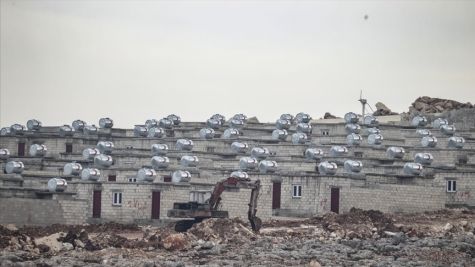
Briquette houses constructed by Türkiye in Syria's Idlib.
On other issues, interests are compatible but assymmetric. For example, the refugee issue is very high on Erdoğan's list of priorities, with the upcoming elections in mind. I imagine Ankara will push for quick progress, hoping to sign some sort of framework deal and perhaps even to see a first batch of people move back over the border before the election. Syrian authorities would probably prefer to leave most refugees in Turkey, but the ability to facilitate or obstruct some form of return agreement is one of their best political assets and it makes sense for them to accommodate Erdoğan to some extent.
On the other side of the ledger, Damascus will want Turkish authorities to curtail opposition activity. But Turkey needs these rebel groups to control its areas in northern Syria, and it wants to keep the political opposition alive as a Turkish instrument in the peace process. I think it makes sense to look at recent history, here. As you may recall, when Turkey sought better ties with Egypt in 2020–21, the government ordered Istanbul-based Muslim Brotherhood media to tone down its anti-Cairo rhetoric. If Turkey-Syria ties continue to improve, we may start to see little things of that sort: maybe a media outlet closing down or an opposition group relocating to Doha. But there are limits to how far Turkey will go in repressing Assad's critics, since having the opposition around is essential to Turkey's own strategy.
As for a full Turkish withdrawal from Syria, I don't think that's even being considered. Again, I'm no Turkey expert, but I can't imagine Ankara simply surrendering all its assets in northern Syria except if the economy slides into a really devastating crisis or perhaps under a post-Erdoğan government. Assad will of course continue to demand a full retreat in public, but in practice I think this is one of those big, lingering disagreements that both sides will need to work around if they're going to get anything done at all.
What about the other actors in the region?
If the relations with Syria are indeed normalized as intended by Türkiye, how do you think different countries and local actors operating in the region will respond to this development? In what ways may such a move affect the dynamics and tensions in the region?
It's mainly a Turkey-Syria thing, and to some extent a Russia-Turkey thing, but there will be effects. Turkey was historically Assad's most hawkish opponent and it props up what remains of the opposition. Turkish normalization with Assad's government would cement the impression that the Syrian conflict is over, and encourage other nations to rebuild ties with Damascus.
Now that all of Syria's neighbors are back on speaking terms with Damascus, attempts to ostracize the regime indefinitely will be more difficult.
Then again, countries that aren't directly exposed to the effects of the war—like the United States or most EU members—aren't under the same kind of pressure to adapt to Assad's survival as Middle Eastern nations. Their policy may be ineffectual, but they can afford it.
One thing to watch, though, is what Qatar would do. Turkey and Qatar work hand in glove on many regional issues, including Syria. Should Turkey keep going in the direction it took on December 28, I expect Qatar to adjust its policy in some way. It may embark on its own normalization process, with Turkish mediation; or it may simply talk less about Assad and more about humanitarian aid, in order to avoid friction with Ankara.
'A unilateral military action by Turkey now less likely'
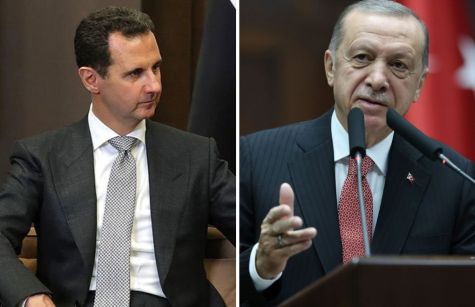
Do you think that Erdoğan and Assad will have direct talks and/or Türkiye will launch a land offensive into northern Syria in the near future?
I think both of these things are possible. A lot is riding on the Turkish elections.
It seems like Erdoğan want to get a photo op with Assad before the elections, which he'll sell to voters as a foreign policy achievement and a step toward refugee repatriation.
Assad doesn't seem keen on helping Erdoğan's election campaign, but he could still do it if the price is right. His regime has always been very stubborn and he will probably hold out for more concessions, but I would expect the process to go forward sooner or later.
The Syrian government's main allies are Russia and Iran—and both are in deep, deep trouble. Assad can't be certain to retain current levels of support, so now that he's being given a chance to mend ties with Turkey it would be foolish to let the moment pass. For that reason, an Erdoğan-Assad summit seems likelly—or at least a phone call or something. But we'll see.
Regarding another Turkish attack on the YPG, I think a unilateral military operation is now less likely. But as I said above, there are other military and nonmilitary options for how to collaborate against YPG.
If Turkey were to help Assad retake territory from the YPG, that could be the win-win outcome they're looking for: Ankara gets to hurt YPG, and Damascus gets to expand its territory.
'Swedish government already walking a pretty fine line'
Given that the Swedish government has recently been taking some steps in line with the Madrid Trilateral Memorandum such as lifting the de facto arms embargo, how do you think a possible Erdoğan-Assad meeting and/or Türkiye's offensive into Syria will affect Türkiye-Sweden relations in the context of the latter's NATO bid?
I don't think an Erdoğan-Assad meeting would make any difference to Sweden-Turkey relations. The Swedish government might disapprove, but Sweden is of very marginal importance to the conflict in Syria. Now that it needs to appease Erdoğan over the NATO issue, I suspect that the Swedish government is unlikely to protest any Turkish behavior that does not directly impinge on Swedish interests.
A Turkish military offensive in Syria could have an indirect impact, if the resulting violence were to set off protests in Sweden and abroad. That's what happened in 2018 and 2019.
In Sweden, pro-YPG protesters are already doing their best to poison Stockholm-Ankara relations, but they're marginal to Swedish politics.
Reports of ethnic atrocities in Syria could lead more mainstream opposition politicians to chime in, putting pressure on the government and reducing its room for maneuver as it negotiates with Ankara.
In a recent poll, support for Sweden's NATO application was very high, but nearly 80 percent of Swedes also opposed Turkey's demands for changes to the Swedish legal and constitutional order. In other words, the Swedish government is walking a pretty fine line already. (SD)
* The views expressed in this interview are the personal views of Aron Lund; they are not expressed in representation or on behalf of the FOI.





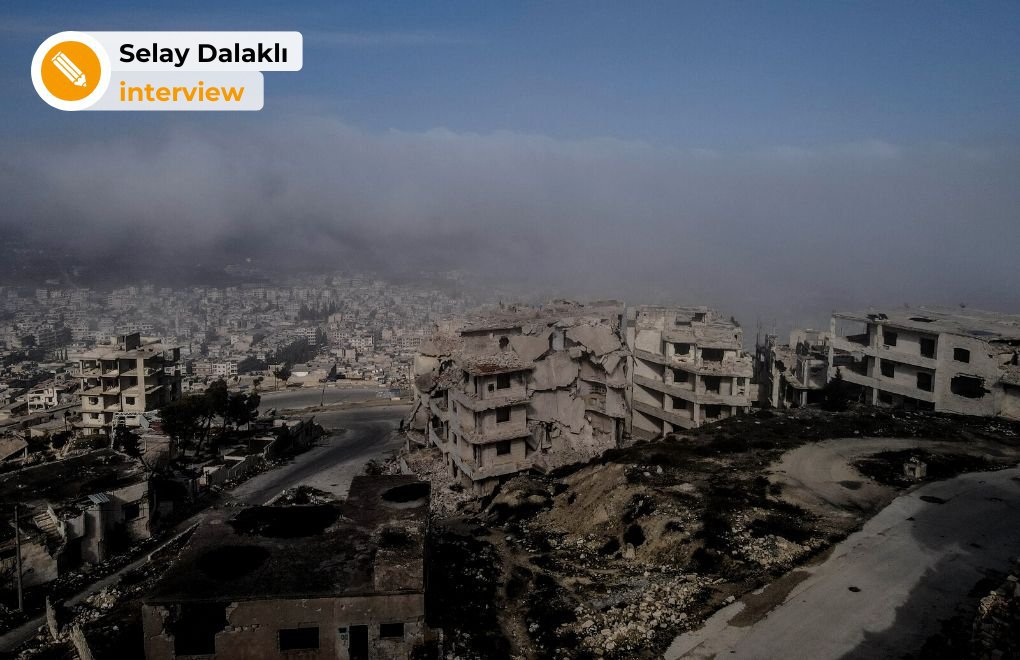
.jpg)

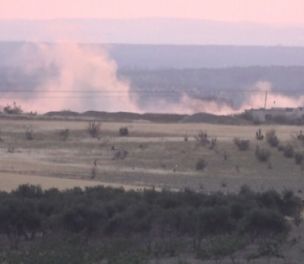





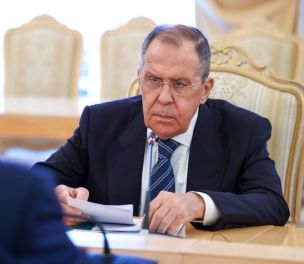
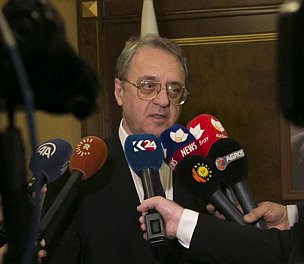
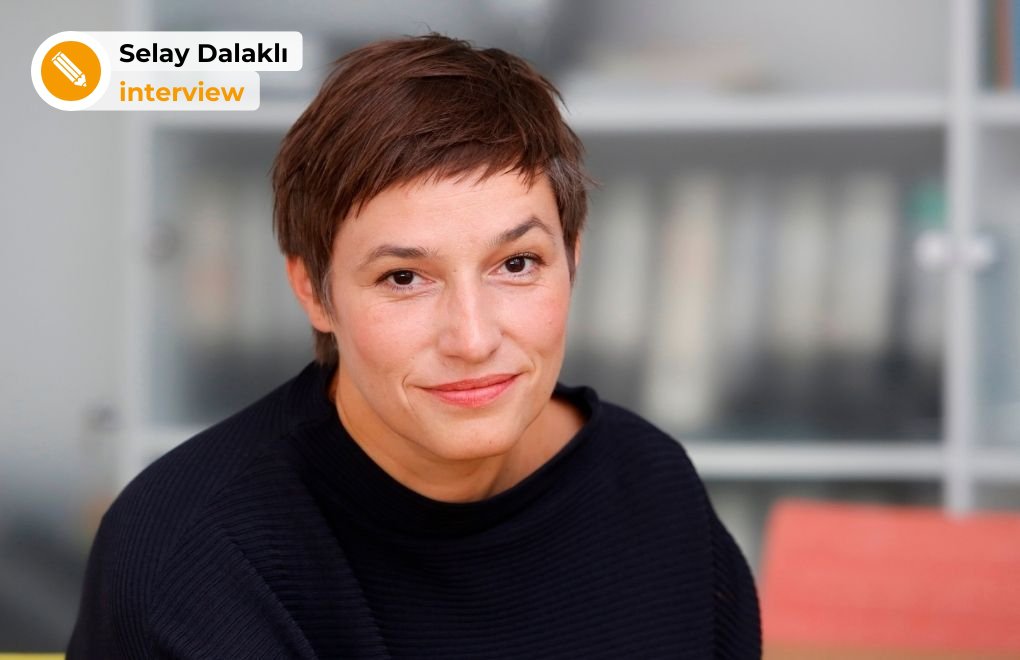
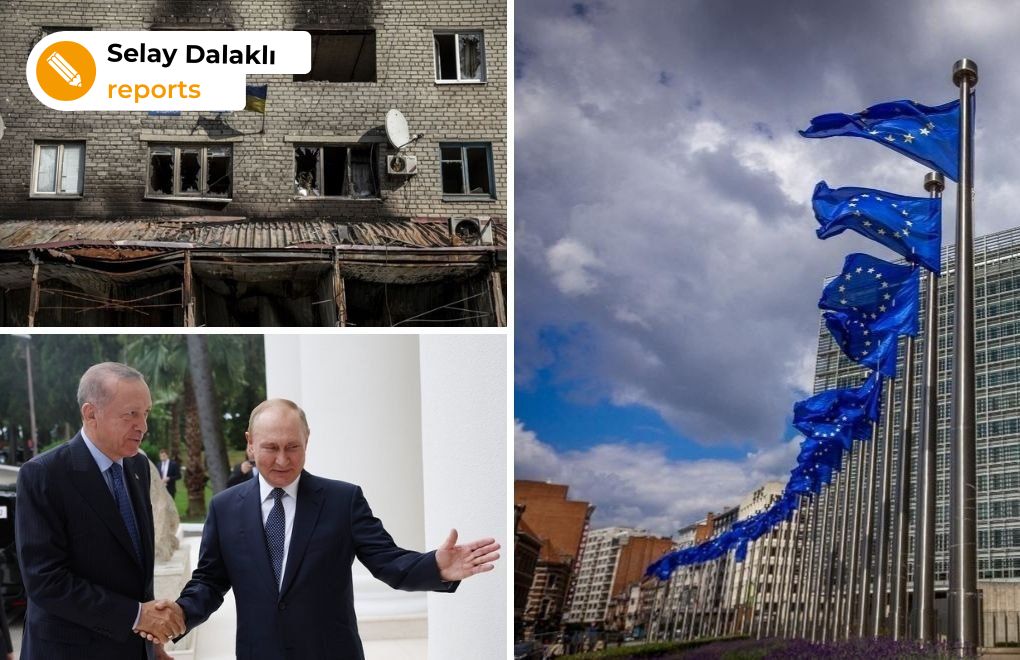
.jpg)
